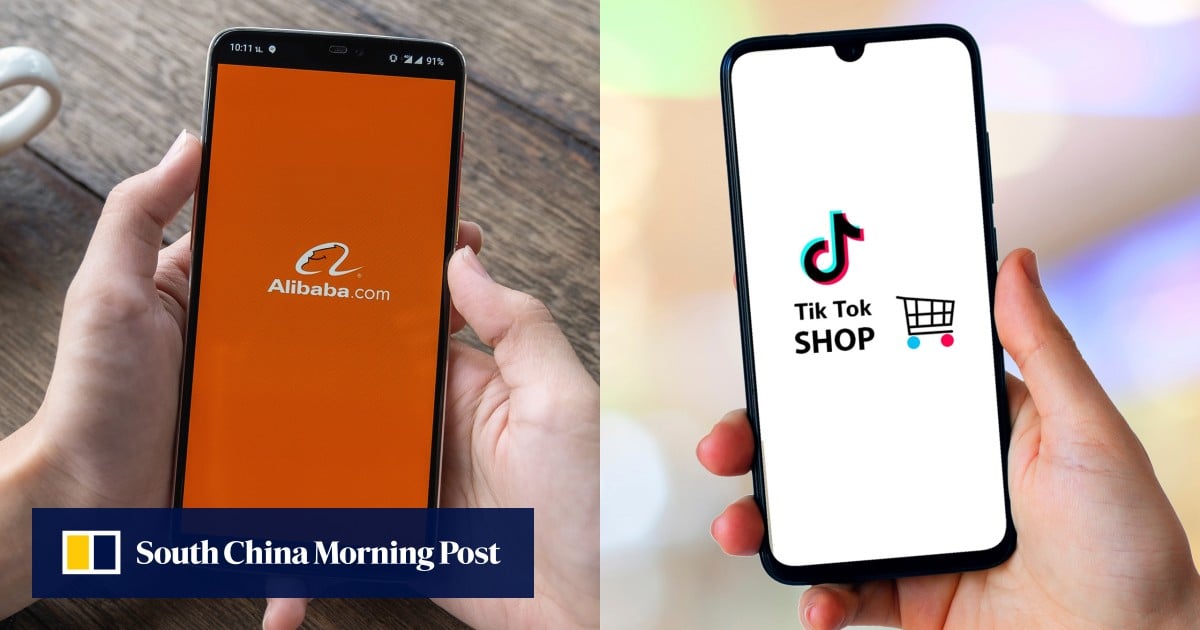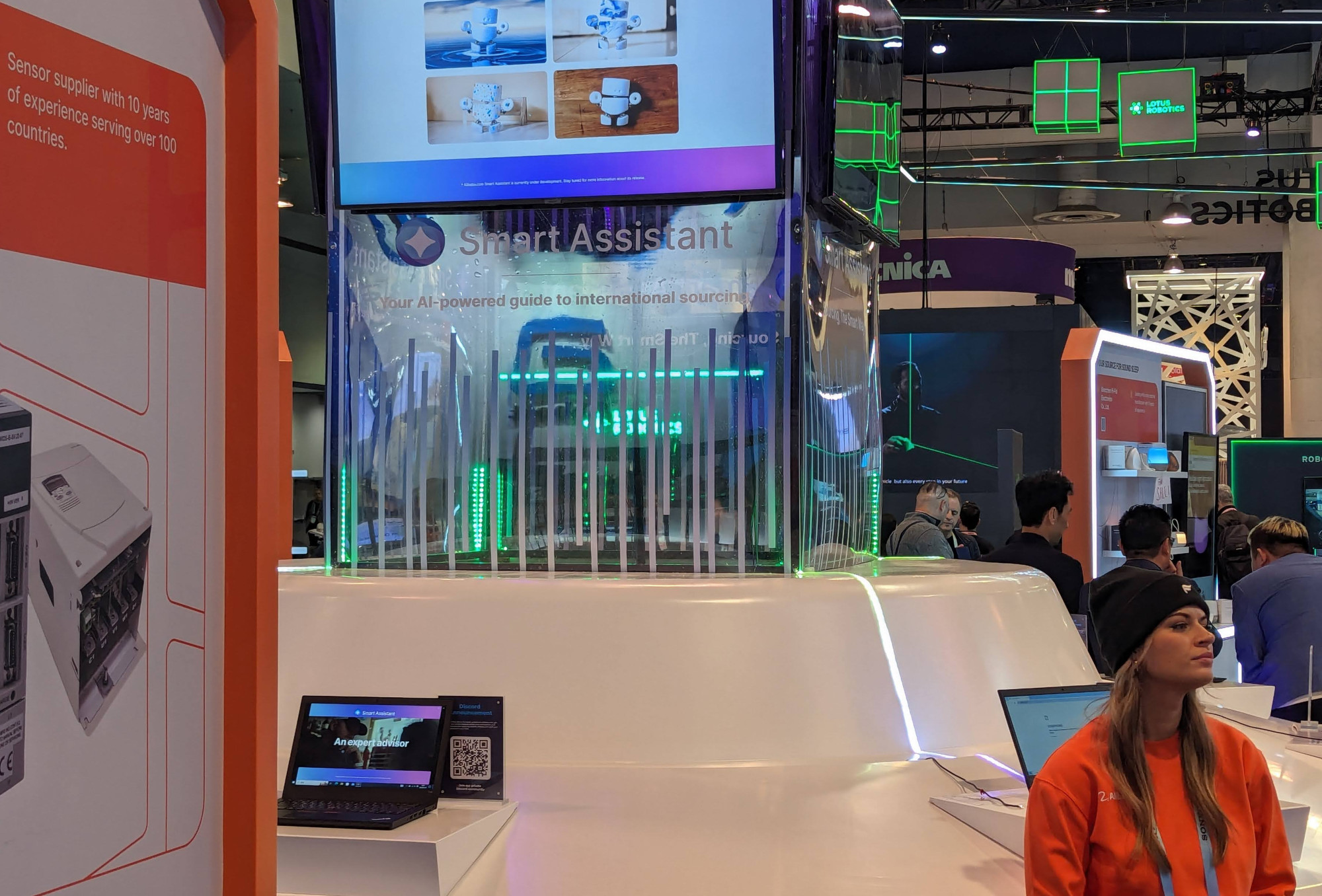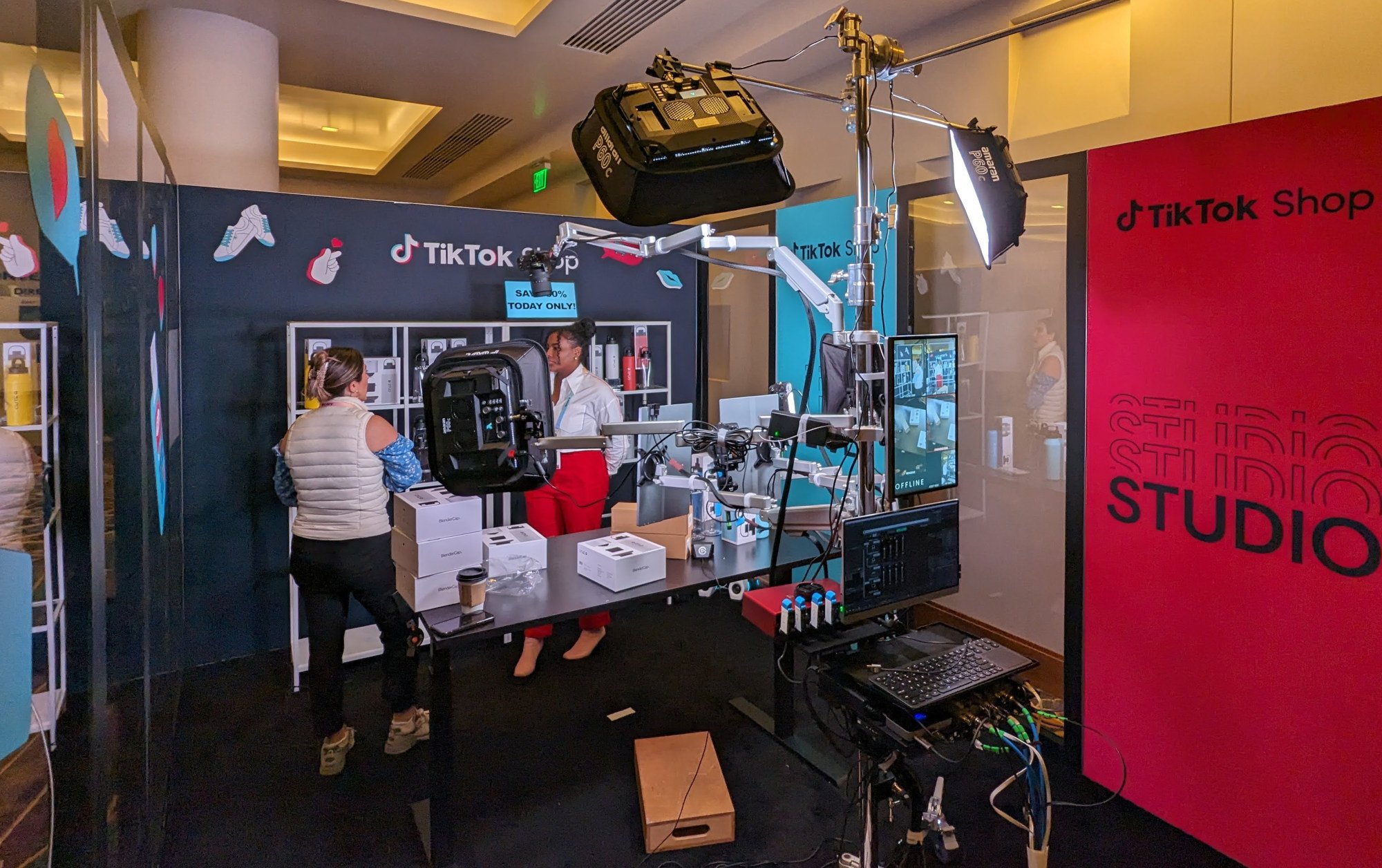
15 Jan Alibaba, TikTok woo US with AI and live-streaming e-commerce at CES trade show, setting the tone for 2024
“With advances in AI, we are ushering in the next generation of sourcing and empowering small businesses to succeed with our Smart Assistant at their side,” Chris Lu, general manager at Alibaba.com North America, said in a statement last week.

Alibaba.com’s debut of Smart Assistant showed how ubiquitous AI innovation was at CES this year. No tech giant’s exhibition was complete without showing off its effort in that space.
By putting generative AI at the centre of its exhibition, Alibaba.com made it clear where it thought the platform’s advantage lies, despite some grumblings from a marketing manager that the product was not quite yet ready for prime time, according to a brand ambassador at the booth.
A number of CES attendees at the Alibaba.com presentation were made up of select “gold suppliers”, or those that pay for a premium membership on the platform, according to some exhibitors.
A test of Smart Assistant by the Post showed the all-too-common limitations of new LLM-powered chatbots. When asked about the best options for sourcing a 10,000-milliampere-hour power bank, it offered a link to search results for the product on Alibaba.com. A follow-up query on the best way to determine differences in quality among suppliers resulted in a generic response about checking certifications and standards.

TikTok Shop representatives were roaming the CES floor looking for companies they can convince to sell on the platform. That task may have been harder for the US team. A US-based TikTok Shop employee told Shenzhen-based mechanical keyboard maker Keychron that he was not allowed to sign up Chinese companies. Only their team in mainland China can on-board those suppliers.
Tech giants Alibaba, ByteDance lead China’s return to CES
Tech giants Alibaba, ByteDance lead China’s return to CES
“Temu or Shein can get those very low-cost items and low-cost shipping because they have the volume,” said Stanley Wong, co-founder and chief product officer of Hong Kong-based Spaceship, which exhibited at CES under its Taiwanese entity. “They have very professional teams to do that kind of supply chain management.”
Chinese suppliers are also Alibaba.com’s bread and butter. While it is ostensibly a global sourcing platform, the vast majority of companies on Alibaba.com are Chinese, which typically offer big cost advantages owing to the mainland’s vast manufacturing supply chain.
Alibaba pushes new AI tool to help wholesale merchants manage overseas clients
Alibaba pushes new AI tool to help wholesale merchants manage overseas clients
“Our focus is to enable individual sellers to” achieve cost-effective supply chain management like Shein and Temu, Spaceship’s Wong said.
As more merchants try to control their own brands and reduce the money they lose to platforms like Shein, Temu and TikTok Shop by operating their own sites, services like Spaceship make sense when making price comparisons on logistics solutions.
Still, Spaceship does not have its own generative AI product yet to take on the likes of Alibaba. The company said it is considering one for customer service.
Many of the underpinnings of AI LLMs are open-source code, making the technology easily accessible to start-ups even if they do not have the data advantage of tech giants. But it could be some time before the kinks are worked out and these start-ups can handle more sophisticated requirements of business users.
